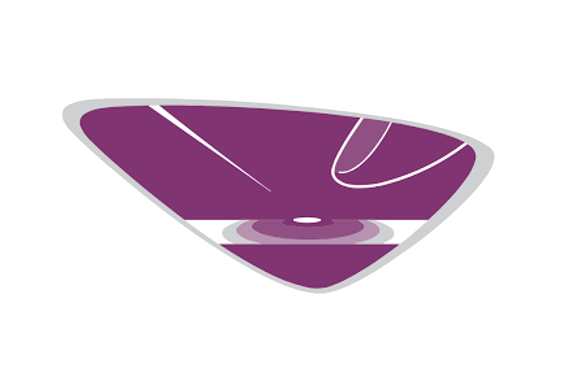Signs & Symptoms of Addiction Physical & Mental
Among teens, it is also important to pay attention to their school behavior and whether or not you’re getting calls from their teachers about new bad behaviors that have little explanation. The following warning signs of teen drug use can help you understand if your friend or family member needs help from a substance use disorder treatment program. Communication is a powerful tool for reducing and preventing teen drug abuse. Talking to your teens about drug use can help them make the decision not to use in the first place or to stop using if they already are.
Your child is coming off moody, distant, and no longer wants to talk about his or her day. We are here to provide assistance in locating an Ark Behavioral Health treatment center that may meet your treatment needs. If you or a loved one are dealing with drug use, contact Addiction Resource today to discover age-appropriate options. Brittany’s clients include young adults suffering from ADHD, entrepreneurs, and recovering addicts who seek support in accomplishing their goals.
Changes in the brain
If you notice your teen is overly tired and distant of late, bring that to his or her attention. If your teen has been spending a lot of money lately, ask where it’s all going to. If you notice your teen has been ditching old friends for new ones, ask why. Look for healthcare providers and treatment centers that serve adolescents.
Both inpatient and outpatient treatment programs are available for teens. Substances such as alcohol, prescription drugs, and illicit drugs cause physical changes in the body, which is especially concerning for teens who are still growing and developing. If a teen with a drug abuse problem is not able to get the money they need to support their habit, they may resort to stealing money. If you notice cash missing from your wallet, this could be a sign of drug use.
The long-term life consequences
Drug use can push people to borrow or steal money or other valuable items, and to neglect ongoing financial obligations. Irritability and mood swings, problems recalling information, and shifts in sleep-wake patterns are other common accompaniments of substance use. Also among the warning signs is a tendency for those experiencing problems to deny or get highly defensive about observed changes in behavior. Drastic changes in mood can occur in substance use disorders, along with hypersensitivity and increased irritability. Someone who experiences painful physical withdrawal symptoms may be incredibly irritable and lash out at others in anger unexpectedly.
- Drug addiction can impact people of all ages, including teenagers.
- For example, many people are medically treated with opioid painkillers for a period of time and easily discontinue medication when pain remits.
- Drastic changes in mood can occur in substance use disorders, along with hypersensitivity and increased irritability.
- When substance use takes hold of someone’s life, new priorities and feelings will control how they behave.
- Not everyone who uses drugs or alcohol has a substance abuse problem.
There’s no cure, but treatment can help you stop using drugs and stay drug-free. If you’re depressed, have trouble paying attention, or worry constantly, you have a higher chance of addiction. A history of trauma in your life also makes you more likely to have addiction.
If you or a loved one are seeking help for addiction, our network of addiction facilities are ready to welcome you.
It is possible to be dependent on a substance without being addicted. Physiological dependence can occur with many different kinds of substances, including common medications. Tolerance and withdrawal are not universal features of substance use disorder; hallucinogens, for example, do not create tolerance or withdrawal symptoms. There are both physical and behavioral clues that someone might be experiencing a problem with substance use. None of them is definitive, and there may be many other causes, but the presence of multiple signs merits special consideration. On the physical side, a sustained neglect of personal appearance, poor hygiene, and listlessness may be signs.

Loss of Interest in Family Activities or Things They Used to Do. Drug use can cause depression or isolation because your loved one doesn’t want anyone to know about their use. The drug may be causing chemical changes to their brain that makes them anxious or reduces their ability to enjoy things that they used to like. You may notice this person spraying areas such as their room or car, wearing very strong cologne or perfume, or even burning candles and incense to cover it. Increased drug abuse can lead to anxiety or paranoia, especially if the drug has left their system and they are experiencing withdrawal.
In the middle or later stages of an addiction, the negative effects will be more permanent or have long-term consequences. Someone with a serious addiction problem may allow, ignore, or trivialize these outcomes in favor of continuing their habits. It’s important to eliminate signs of drug use any potential medical reasons for someone’s health decline. Keep in mind that someone with an addiction will almost always understate the seriousness of their condition. If there’s no other explanation, then there’s an increased chance of an underlying addiction problem.
Irritability, agitation, restlessness, and sleep disruption are common withdrawal symptoms for many drugs as are muscle cramps, headaches, and changes in blood pressure and heart rate. Drug cravings can be fierce, and fear of withdrawal symptoms often drives continued drug use. Cravings are intense desires for a substance and motivate the repeated seeking of the substance and its effects. They are typically viewed as a sign of entrenchment of the addiction process.

